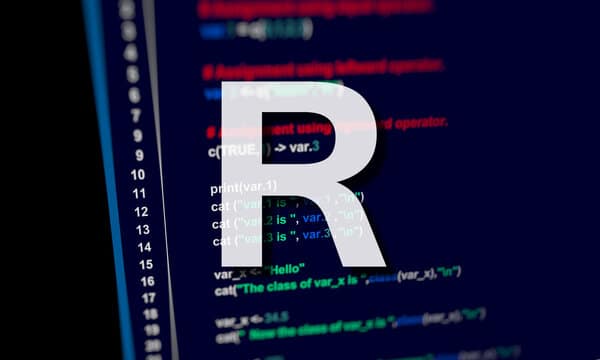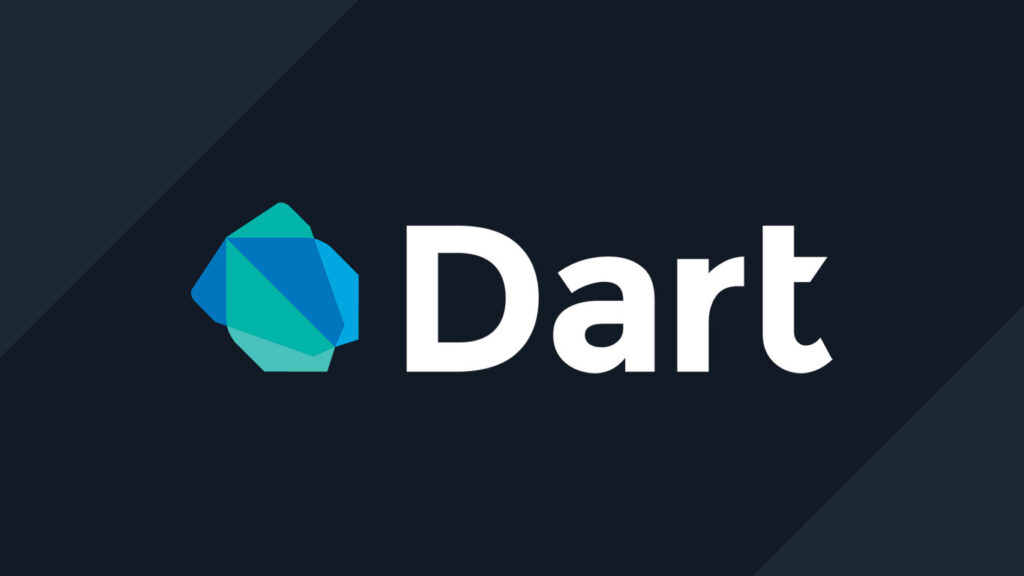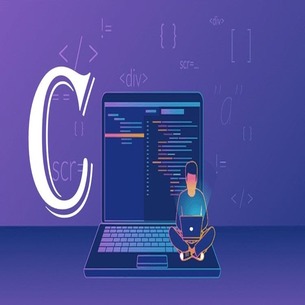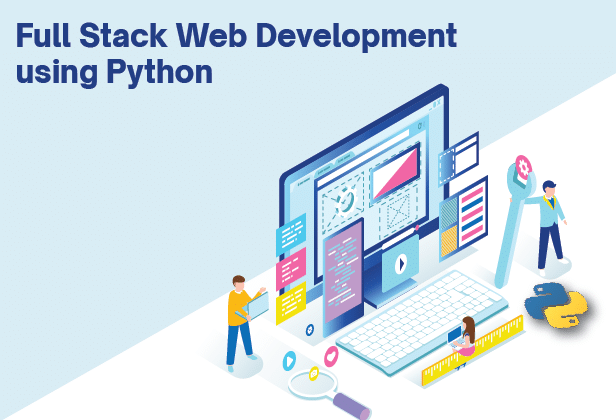Java Full Stack Training
Java Full stack Training at Edukators in Coimbatore, a program designed for beginners to experienced individuals with the skills needed to develop end-to-end web applications. The Java full-stack developer course training covers both the back-end and front-end aspects of web development, focusing on the use of Java for server-side programming and incorporating front-end technologies such as HTML, CSS, and JavaScript. Students learn how to build robust and dynamic web solutions by gaining proficiency in Java frameworks like Spring for the back end and leveraging popular front-end frameworks and libraries.
- admin
-
(0)
- 0 enrolled students
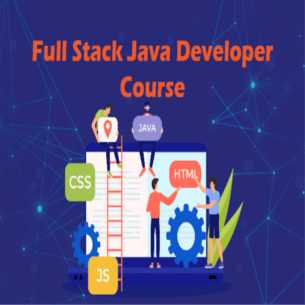
Description
About Java Full Stack Training at Edukators Coimbatore
Java Full Stack Training at Edukators teaches you the set of skills to gain knowledge about web development. The Java Full stack training program covers both the backend and frontend aspects of building web applications. Students will learn about Java programming language to craft the server-side functionalities of their applications. This Java full-stack developer course involves understanding and working with frameworks like Spring, which simplifies and streamlines backend development. The learners also get hands-on experience in frontend technologies like HTML, CSS, and JavaScript. Students learn how to seamlessly connect their applications to databases, ensuring efficient storage and retrieval of data.
Know about Java Full Stack Trainer
Trainers in Java Full Stack Training Course in Coimbatore are well experienced and know about full stack development in Java technologies. Tutors are experts in both frontend and backend development, offering students a basic understanding of creating robust and dynamic web applications. Proficient in Java and frameworks like Spring, they guide learners through the detailed learning of server-side programming. Moreover, trainers move into frontend technologies such as HTML, CSS, and JavaScript, enabling students to craft engaging user interfaces. Database management, is a critical aspect of java full-stack developer skills, ensuring students can learn to connect their applications to databases. Java full-stack developer trainers provide the students with hands-on exercise and real-world projects.
Edukators upcoming batch schedule for java full stack training
 Find a batch you are looking for!
Find a batch you are looking for!
Request A Batch
Benefits of taking course with us!
Enrolling in a Java Full Stack training course offers countless of benefits for aspiring developers. Additionally, the course equips individuals with in-demand skills, significantly enhancing their marketability and career prospects. Furthermore, the hands-on nature of the training, involving real-world projects, allows participants to apply their knowledge in practical scenarios, solidifying their skills and boosting confidence. Overall, undertaking a Java Full Stack developer course paves the way for career advancement and opens doors to a dynamic and rewarding professional journey.
Course Details
- What is a program?
- Why Programming?
- What is an IDE?
- What is compiler?
- Java overview
- History of Java
- Features of Java
- Setting up the environment.
- Difference between JRE, JDK, JVM
- Bytecode,Unicode, ClassLoader, Classpath, Path
- JVM Architecture
- Unicode Systems
- What is syntax?
- What is variable, Identifiers & Literals?
- Type Casting
- Java Keywords
- What is comments & java comments?
- What is Data-types ?
- Primitive data types
- Non-primitive data types
- Java Numbers & Characters
- Java Arrays
- Operators in java
- Java if
- Java if-else
- Java else if
- Java Switch
- Java For Loop and its type
- Java While Loop
- Java Do While Loop
- Java Break
- Java Continue
- Java user-defined function
- Java Method Parameters
- Java Scope
- Java Recursion
- Java Lambda
- Java Files
- Java Create/Write Files
- Java Read Files
- Java Delete Files
- Introduction to Garbage Collection
- Advantage of garbage collection
- Working of garbage collection in Java
- Memory heap generations
- Mark-and-sweep
- What triggers Java garbage collection?
- Different garbage collectors - Serial, Parallel, CMS(Concurrent mark-and-sweep), G1 (Garbage first)
- How to ensuring a Java object is removed during garbage collection?
- Fundamentals of Exception Handling
- Exception types
- Execption Hierarchy
- Try and Catch and finally
- Throw , throws
- Custom Exception
- Chained Exception
- Java OOP
- Class & Objects
- Object Cloning
- Class Attribute
- Class Methods
- Constructors
- Java Inheritance
- Java Aggregation
- Package
- Access Modifiers
- Encapsulation
- Method Overloading
- Method Overriding
- Covariant Return Type
- super keyword
- Instance Initializer block
- final keyword
- Runtime Polymorphism
- Dynamic Binding
- instance of operator
- Abstract class
- Interface
- Abstract vs Interface
- Other OOP's Concepts
- Math class
- Wrapper Class
- Call By Values
- strictfp keyword
- Command Line Arg
- Defining Packages
- Extending Interfaces
- Why Generics?
- Generics Classes
- Generics and Primitive Types
- Constraints
- Comparable Interface
- Generic Methods
- Multiple Type Parameters
- Generic Class and Inheritance
- Collection Framework
- Iterables
- Iterable Interface
- Iterator Interface
- Collection Interface
- List Interface
- Comparable Interface
- Comparator Interface
- Queue Interface
- Set Interface
- Hash tables
- Map Interface
- Functional Interfaces
- Anonymous Inner class
- Lambda Expressions
- Variable Capture
- Method Reference
- Built-in Functional Interface
- Consumer Interface
- Chaining Consumer
- Supplier Interface
- Function Interface
- Composing Functions
- Predicate Interface
- Combining Predicates
- Binary Operator Interface
- Unary Operator Interface
- Imperatice vs Functional Programming
- Creating a Stream
- Mapping Elements
- Filtering Elements
- Slicing Elements
- Sorting Elements
- Getting Unique Elements
- Peeking Elements
- Simple Reducers
- Reducing a Stream
- Collectors
- Grouping Elements
- Partitioning Elements
- Primitive Type Streams
- Unary Operator Interface
- Process and Threads
- Starting a Thread
- Pausing a Thread
- Joining a Thread
- Interpreting a Thread
- Concurrency issues
- Race Conditions
- Thread Safety
- Locks
- Synchronized Keyword
- Volatile Keyword
- Thread Signaling and Notify
- Atomic Objects
- Adders
- Synchronized Collections
- Concurrent Collections
- Thread Pools
- Executors
- Callables and Futures
- Asynchornous Programming
- Completable Future
- Creating a Completable Future
- Implementing Async Api
- Running on code Completion
- Handling Exceptions
- Transforming Completable Future
- Composing Completable Future
- Combinig Completable Future
- Waiting for many tasks
- Waiting for first task
- Handling Timeouts
- What is Database? Types of Databases?
- What is DBMS?
- What is RDBMS?
- Environment setup - Mongo installation
- Mongo shell - CRUD operations
- Installing mongo driver
- Making connection with Java
- Introduction to JDBC
- Database and Drivers
- Types of Driver
- Database with different driver
- Loading a driver Class File
- Connection Establishment
- Result set, Statement, Prepared statement Interface
- Batch Update
- Transaction Management
- Callable Statement
- Basic of JSP
- Scriptlet Tag,Expression Tag, Declaration Tag
- Implicit Objects
- Directive Elements
- Action Elements in Exception Handling
- Expression Language
- MVC Pattern
- JSTL
- Custom Tags
- What is Servlet?
- Client Server Architecture
- Servlet Fundamentals
- Servlet Lifecycle & Servlet Interfaces
- Servlet Request
- Servlet Collaboration
- Servlet Configure
- Servlet Context
- Servlet Tracking
- Filters in J2EE
- Listeners in J2EE
- Servlet API
- Sending Mail
- Receiving Mail
- Sending HTML Content
- Sending the Email through Gmail Server
- Junit - What and Why
- Asset Class & Test Class
- Annotations used in Junit
- What is Maven
- Difference between Maven and Ant
- Maven Installation
- Maven Repository
- Pom.XML
- Maven WebApp
- What is HTML?
- Difference between Web and Internet
- History of HTML
- What is W3C?
- Difference HTML vs HTML 5
- IDE setup
- How to write and run HTML file?
- HTML Skeleton in detail
- What is DOM ?
- DOM levels
- HTML Style Guide
- Block and Inline Elements
- Semantic Elements
- HTML Elements
- HTML Attributes
- HTML Colors
- HTML Headings
- HTML Style
- HTML Paragraph
- HTML Formatting
- HTML Images
- HTML ID
- HTML CSS
- HTML Links
- HTML Class
- HTML Lists
- HTML Tables
- HTML JavaScript
- HTML Quotation and Citation Elements
- HTML Iframes
- HTML File Paths
- HTML Computer Code Elements
- HTML Versus XHTML
- HTML URL
- HTML Layout
- HTML Layout Techniques
- Superscript and Subscript
- Horizontal line
- Marked or highlighted text
- Deleted (cross-through) text
- HTML Forms Introduction
- HTML Form Attributes
- HTML Form Elements
- HTML Input Types
- HTML Input Attributes
- HTML Input Form Attributes
- HTML Buttons
- HTML Geolocation API
- HTML Drag and Drop API
- HTML Web Workers API
- HTML SSE API
- HTML Media
- HTML Video
- HTML Audio
- HTML Plug-ins
- HTML YouTube
- HTML Canvas
- HTML SVG
- What is Web Storage?
- Cookies
- The localStorage Object
- The sessionStorage Object
- Delete Web Storage
- What is CSS?
- CSS Syntax
- Adding CSS and Its types
- CSS Selectors
- CSS Box Models
- CSS Specificity
- Block Level Elements
- Inline Level Elements
- What is CSS Units and its types?
- Absolute Lengths
- Relative Lengths
- What is CSS Specificity?
- Specificity Hierarchy
- How to Calculate Specificity?
- What is CSS Positions?
- Static, Relative, Fixed
- Absolute, Sticky
- CSS Padding
- CSS Margins
- CSS Shadows
- CSS Colors
- CSS Z- index
- CSS Images
- CSS Boarders
- CSS Masking
- CSS Comments
- CSS The Important Rule
- Flex Container and its properties
- Flex Items and its properties
- Flex Responsive and its properties
- Grid Layout and its properties
- Grid Container and its properties
- Grid Item and its properties
- Designing a webpage using grids
- Introduction to Javascript
- Setting up local environment
- Installing Node JS
- Different ways of using or adding JS in web development
- JavaScript Display Possibilities
- History of JS
- What is ECMA?
- JS String Literals
- What is Variable
- Identifiers and rules
- JS Comments
- JS Let
- JS Const
- JS Var
- Difference of Let, Const, Var
- Arithmetic Operators
- Assignment Operators
- Comparison Operators
- String Operators
- Logical Operators
- Bitwise Operators
- Ternary Operators
- Type Operators
- Operator Precedence
- String
- Number
- Bigint
- Boolean
- Undefined
- Null
- Symbol
- Object
- An object
- An array
- An date
- If else
- Switch Statement
- For Loop
- For In
- For Of
- While Loop
- break, continue
- User defined function
- Arrow Function
- this Keyword in detail
- call, apply, bind
- Arrow Function with this keyword
- passing this keyword
- Strict Mode in JS
- Closure Function
- What is Error /Exception Handling?
- Try, Catch
- Throw custom error
- Raising errors based on error type
- Finally
- OOPS and its principles
- Class structure
- Inheritance
- Encapsulation
- Abstraction
- Polymorphism
- Object Composition
- Static Method
- JS Callback with example
- Understanding Asynchronous JavaScript
- JS Promises
- JS Async / Await with example
- DOM Documents with example /li>
- DOM Node with example
- DOM Events with example
- DOM Event Listeners with example
- DOM Forms with example
- Whats is WebAPI Intro?
- Workers API
- Forms API
- Storage API
- What is REST ?
- Live API working check
- More about API - Status code, Headers, Payloads and more
- What Is jQuery?
- Benefits of Using a JavaScript Library
- jQuery Structure and its Example
- Using Bind
- Using selectors Tag, id, class
- CSS Property Update
- Updating multiple css properties
- Example to get the dimension of a box
- CSS Chaining
- What is DOM Manipulation?
- attr(), html(), text() and val() with examples
- DOM Manipulation - Add in detail
- Functions - append, appendTo, after, insertAfter
- Functions - prepend, prependTo, before, insertBefore
- DOM Manipulation - Remove Intro
- Functions - remove(), empty()
- DOM Manipulation - Replace
- Function - replaceWith()
- Get and Set examples - html, text, val, attr
- What is DOM traversing? and know about its functions
- Functions - sibling, next, nextall, nextUntil
- Functions - prev, prevAll, preUntil
- what is Filtering and its functions?
- Function - first, last, eq, not, filter
- Traversing Ancestors with its functions
- Functions - parent, parents, parentsUntil
- Traversing Descendants and its function
- Functions - children, find
- What is Effects, Hide and show functions?
- Spring Architecture
- Spring Environment Setup
- Hello world Example
- IoC Containers
- Bean Definition
- Bean Scopes
- Bean Life Cycle
- Bean Post Processors
- Bean Definition Inheritance
- Dependency Injection
- Injecting Inner Beans
- Injecting Collection
- Beans Auto Wiring
- Annotation Based Configuration
- Java Based Configuration
- Event Handling in Spring
- Custom Events in Spring
- AOP with Spring Framework
- JDBC Framework
- Transaction Management
- Web MVC Framework
- Logging with Log4J
Requirements
Job Opportunites for Java Full Stack
Full Stack Java developers enjoy a wide range of job opportunities across various industries. Here are some common job roles and opportunities for individuals with Full Stack Java skills:
- Full Stack Java Developer
- Java Software Engineer
- Web Developer
- Application Developer
- Software Architect
- Systems Analyst
- DevOps Engineer
- Database Administrator
- Technical Lead
- Quality Assurance
FAQ's about Java Full Stack at Edukators in Coimbatore
The course usually covers a range of technologies, including Java, Spring frameworks, HTML, CSS, JavaScript, databases like MongoDB.
Practical projects are a crucial component of Full Stack Java training. They allow students to apply their knowledge in real-world scenarios and build a portfolio of projects for showcasing their skills to potential employers.
Many Full Stack Java courses offer a certificate upon successful completion. Ensure that the certification is recognized and valued in the industry.
A good Full Stack Java course should provide insights into industry practices, best coding practices, and real-world scenarios. It’s beneficial if the course content aligns with current industry trends.
Related Courses
-
Free
R Programming
-
Free
Dart Programming
-
Free
PHP Programming
-
Free
C Programming Course

